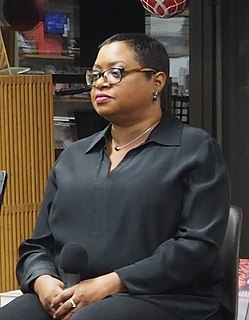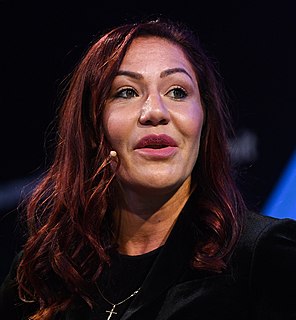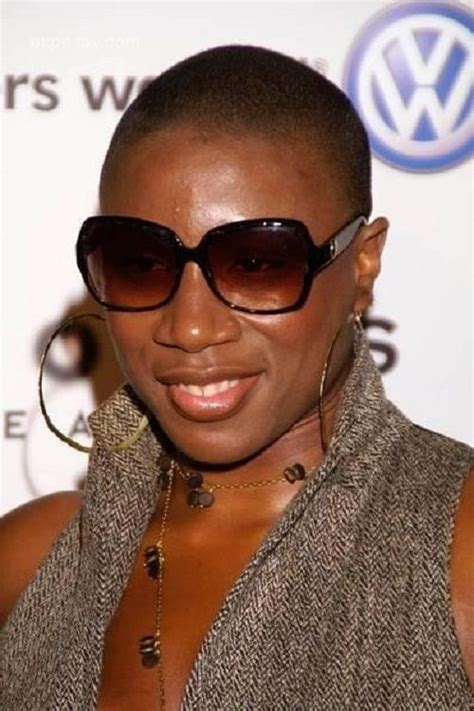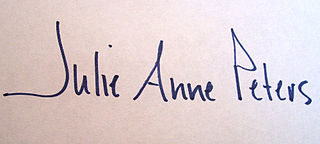A Quote by Leah D. Daughtry
When I looked at [Fannie Lou] Hamer and that speech it seemed to me that she had to be the bravest woman ever, to come before that body and to assert her rights, when she knew that she was going lose that battle. But she did it anyway, because she knew she was speaking not just for herself and for that day, but for me, and for all the other young women who were coming behind her. She didn't know our names, but she was working for us. I find that incredibly empowering.
Related Quotes
She looked at his young face, so full of concern and tenderness; and she remembered why she had run away from everyone else and sought solitude here. She yearned to kiss him, and she saw the answering longing in his eyes. Every fiber of her body told her to throw herself into his arms, but she knew what she had to do. She wanted to say, I love you like a thunderstorm, like a lion, like a helpless rage; but instead she said: "I think I'm going to marry Alfred.
Yet losing him seemed unbearable. He was the one she loved, the one she would always love, and as he leaned in to kiss her, she gave herself over to him. While he held her close, she ran her hands over his shoulders and back, feeling the strength in his arms. She knew he’d wanted more in their relationship than she’d been willing to offer, but here and now, she suddenly knew she had no other choice. There was only this moment, and it was theirs.
She emptied herself of Fabio and of herself, of all the useless efforts she had made to get where she was and find nothing there. With detached curiosity she observed the rebirth of her weaknesses, her obsessions. This time she would let them decide, since she hadn't been able to do anything anyway. Against certain parts of yourself you remain powerless, she said to herself, as she regressed pleasurably to the time when she was a girl.
...fact was she knew more about them than she knew about herself, having never had the map to discover what she was like. Could she sing? (Was it nice to hear when she did?) Was she pretty? Was she a good friend? Could she have been a loving mother? A faithful wife? Have I got a sister and does she favor me? If my mother knew me would she like me? (140)
But what I kept wondering about is this: that first second when she felt her skirt burning, what did she think? Before she knew it was candles, did she think she'd done it herself? With the amazing turns of her hips, and the warmth of the music inside her, did she believe, for even one glorious second, that her passion had arrived?
It was not the passion that was new to her, it was the yearning adoration. She knew she had always feared it, for it left her helpless; she feared it still, lest if se adored him too much, then she would lose herself, become effaced, and she did not want to be effaced, a slave, like a savage woman. She must not become a slave. She feared her adoration, yet she would not at once fight against it.
I believe in Amy Winehouse. I know she’s not with us anymore but I believe she was who she was and in that way she got it right. I would say an actress like Lauren Bacall also got it right. She never let anyone persuade her to be something she wasn't. She was strong. She always looked like she knew what she was doing.
She was perfect. I knew this the moment she emerged from my body, white and wet and wailing. Beyond the requisite ten fingers and ten toes, the beating heart, the lungs inhaling and exhaling oxygen, my daughter knew how to scream. She knew how to make herself heard. She knew how to reach out and latch on. She knew what she needed to do to survive. I didn’t know how it was possible that such perfection could have developed within a body as flawed as my own, but when I looked into her face, I saw that it clearly was.
She looked at him then, but his image blurred behind tears that swelled into her eyes. She must leave. She must leave this room, because she wanted to hit him, as she had sworn she never would do. She wanted to cause him pain for taking a place in her heart that she wouldn't have given him if she'd known the truth. "You lied to me," she said. She turned and ran from the room.








































